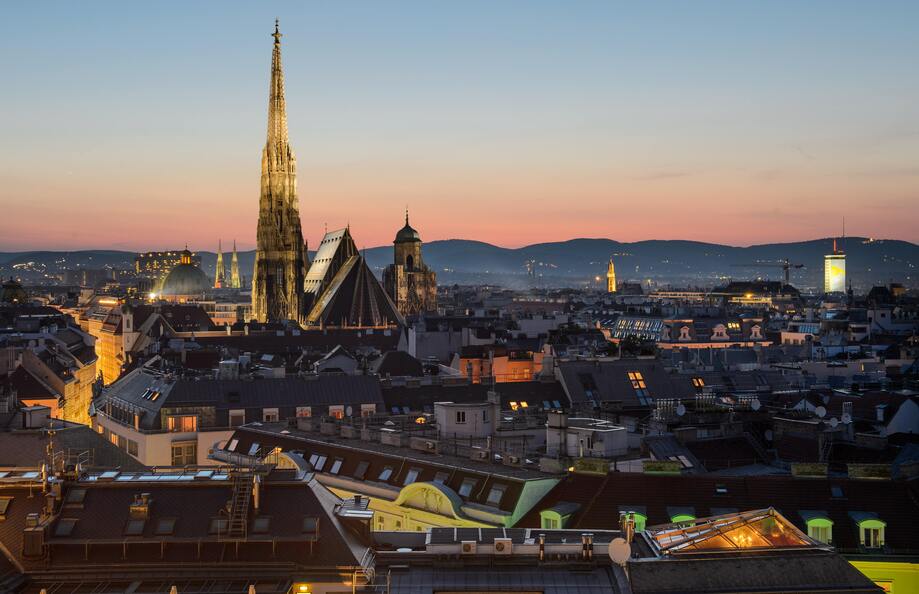Reflecting a critical attitude towards the Church, in the 1970s and 1980s one often heard in the hitherto traditionally Catholic countries of Europe, including Austria: "Christ yes, Church no". Around the turn of the millennium, if not before, this statement was replaced by the question about God himself: God or something else? or what? or nothing... Although sociologists have been saying all these years that the interest in religion remains, the same is not true for the interest in God. Religion, or spirituality, even without God?
Atheism in Austria
On December 30, 2019, the "Religious Atheist Society of Austria" ("Atheistische Religionsgesellschaft in Österreich"ARG) submitted the application for state recognition as a confessional faith community, the first step towards recognition as a legally recognized religious community. The ARG meets the legal requirements, because it has more than 300 members; and it is not the only atheist group in Austria: there are more than half a dozen of them, which in turn represent only a fraction of all atheists in Austria. Other secular associations criticize the ARG proposal because it would imply complicity with an obsolete system.
This begs the question: can atheism be a religion, is it, or does it become a religion when the state grants a community of atheists recognition as a religious community? What does a state, in this case Austria, mean by religion? There is no precise definition in Austrian law. In general, three elements are mentioned as characteristic of the concept of religion: in addition to an overall interpretation of the world and man's position in it, as well as the corresponding orientations for action, above all the reference to transcendence is decisive. If this is missing, one speaks of a "world view" or "world conception".
But... atheism as a religion, isn't it absurd? Atheism means "without God". And doesn't religion always have to do with God or something divine? ARG representatives do not believe in deities that, according to them, "were created by humans". In spite of that the ARG understands itself as a religious community: for them religion is a kind of lived philosophy, and the practice of religion is a practical help for life. Thus, on the ARG website one can even read about atheistic pastoral care, for example in situations of suffering and death, even in the absence of faith in an immortal soul. Pastoral care then approaches psychotherapy.
Atheism, a religion?
The Vatican Council IIIn "Gaudium et Spes" (nn. 19-21), he speaks of atheism in relation to human dignity: "The recognition of God is in no way opposed to human dignity, since this dignity has its foundation and perfection in God himself". And: "The highest reason for human dignity consists in man's vocation to union with God". On the other hand, according to the words of the Council, "when this divine foundation and this hope of eternal life are lacking, human dignity suffers very serious damage, as is often the case today, and the enigmas of life and death, of guilt and pain, remain unresolved, often leading man to despair".
ARG representatives answer these and other questions on a purely human level, because according to their conception, their "ethos" has been and is developed and agreed upon by human beings, and value concepts are always of human origin. It is true that among them there are also general values, such as "taking responsibility" and "learning from mistakes". But the ultimate questions, in the sense of the Council, are answered from a purely human perspective and experience. Including the question of death: after death there is nothing. Perhaps it will make man feel pain, but at most it will be as long as he lives.
A question about transcendence
Christianity is a religion of Revelation: "I am the God of your fathers, the God of Abraham, Isaac and Jacob", says Yahweh when he appears to Moses in the bush in the desert. God has spoken to man, "in these last times, through his Son," as the Letter to the Hebrews says. Man's faith is always a response of man to God who addresses himself to him. The action of the believing person is guided by the words and deeds of God, insofar as he recognizes them. Although God is the "wholly other" and, according to St. Thomas Aquinas, we ignore much more about God than we know, God remains recognizable: "He who sees me sees the Father," Jesus says to Thomas at the Last Supper, the Upper Room. Even when, in the words of the Council, the believer as a human being remains for himself an unresolved question, only God can give the full and certain answer.
The "Religious Atheist Society" knows nothing of all that. And yet it claims to be a religious society. It sees its reference to transcendence in the fact that it is, of course, concerned with God, although it denies his existence. The Vienna Administrative Court has on June 1, 2022 rejected the ARG's application for recognition as a faith community, and described it as a "worldview community." The court justifies its decision by saying that the ARG's conception of transcendence is insufficient for a religious community, because it does not refer to those realms that are outside of all conscious, plannable and immanent experience, and which are the subject of a "different" reality.
The Atheist Religious Society has appealed this decision to the Constitutional Court, Austria's highest court. In doing so, it primarily invokes Article 14 of the European Convention on Human Rights, as the decision of the Vienna Administrative Court would disregard the religious freedom of the ARG. It will be interesting to see how the Constitutional Court rules.
Austria







